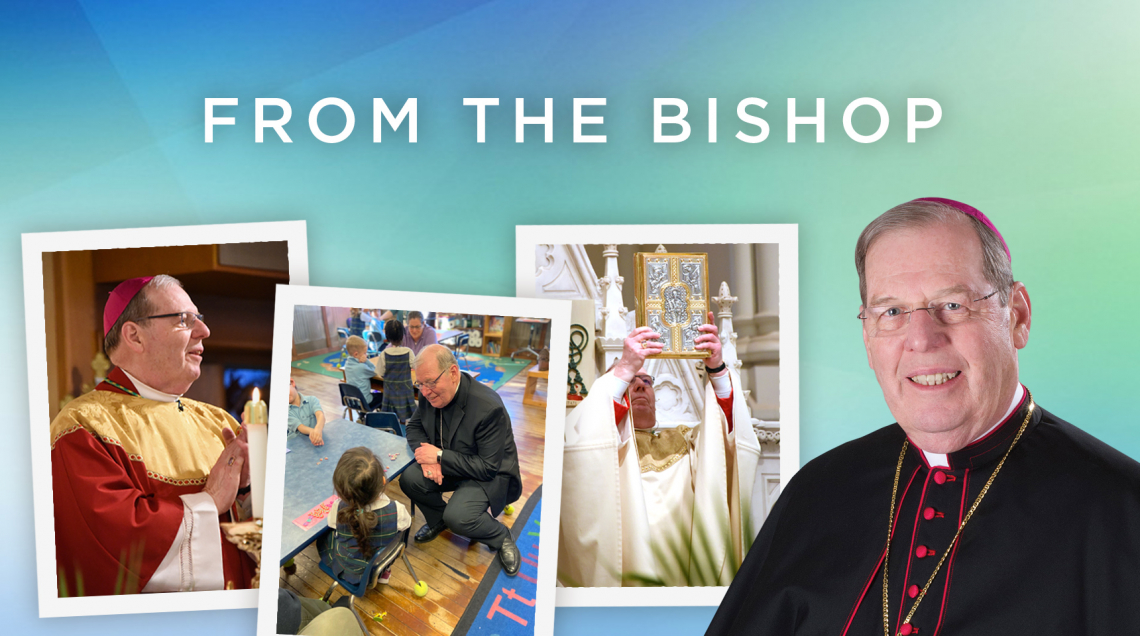Praise God by Protecting the Earth

St. Francis of Assisi is the patron saint of animals and ecology. St. John Paul II in 1979 added “patron of ecology” to Francis’ patronage as he held up the love that Francis had for creation as an example for our times. Even 40 years ago, St. John Paul II spoke of the “worrying lightness” with which human society “is slowly destroying the vital environment that the Creator’s wisdom has built for him.” He challenged us to pay attention to St. Francis and cautioned that we are reminded by his example and life “not to behave as senseless ‘predators’ towards nature but to take responsibility for it, taking care that everything remains healthy and intact, that is, such as to offer a welcoming and comfortable environment” even to those people who will come after us.
This year, on October 4, the Feast of St. Francis, our present Holy Father, Pope Francis, issued a new urgent call to accept that “climate change is one of the principal challenges facing society and the global community.” He communicated his concern in a new apostolic exhortation, Laudate Deum (Praise God). He does not believe the responses that have been made to this point have been adequate to the challenge. “The world in which we live is collapsing and may be near the breaking point.” Pope Francis reminds us that he had already conveyed his concern for the care of our common home in his 2015 encyclical, Laudato Sí, but he fears that not enough is being done to arrest the impact of climate change. And he believes that “the signs of climate change are here and increasingly evident.” He writes, “It is verifiable that specific climate changes provoked by humanity are notably heightening the probability of extreme phenomena that are increasingly frequent and intense.”
In pointing to solutions, this new document builds on the teaching of the encyclical. Pope Francis reminds us that the ones harmed by the effects of climate change are the most vulnerable people, and it is our concern for the people of our world that calls us to respond to the challenge of climate change.
This is consistent with the notion of “integral ecology,” an idea initially articulated by St. John Paul II but central to the teaching of Laudato Sí. We, as human persons, are part of nature and the environment itself. Pope Francis stated that “we must regain the conviction that we need one another,” that we have a shared responsibility for others and the world, and that “being good and decent are worth it.” In essence, to address environmental problems and promote the protection of nature, we must first ensure that the dignity of the human person is being protected by growing “in solidarity, responsibility, and compassionate care.”
Integral ecology also means that there is a connection between human life and moral law: “the human person has a nature created by God that must be respected and that cannot be manipulated at will.” This teaching also presumes the social nature of the human person. Thus, human ecology is inseparable from the notion of a common good, grounded in a respect for each human person and recognizing the basic right of each person to integral human development. Our world struggles with individualism and instant gratification, and both have caused a strain on families and interpersonal relationships. Integral ecology encourages a renewal of appreciation for our interconnectedness with one another and the nature in which we exist, which will help show us a way forward to strive to live with and for others.
Pope Francis now expands on this notion. Our Judeo-Christian vision of the universe “accepts the unique and central value of the human being amid the marvelous concert of all God’s creatures,” but at the same time, “human life is incomprehensible and unsustainable without other creatures.” As such, the pope urges us “to stop thinking of human beings as autonomous, omnipotent, and limitless, and begin to think of ourselves differently, in a humbler but more fruitful way.”
A good part of the new letter devotes itself to encouraging governments and global organizations around the world to cooperate in addressing climate change and its dangers. In particular, the Holy Father speaks of the importance of the upcoming 28th Climate Conference sponsored by the United Nations (COP28), which is to be held in Dubai beginning on November 30. Pope Francis strongly criticizes governments for the lack of recognition of the seriousness of the climate challenge and the failure to propose substantive changes.
Though the efforts of the international governments and global organizations are the key to forward motion, Pope Francis does not minimize the efforts of individuals, like us, to make changes in their own lives and uses of the environment. “Efforts by households to reduce pollution and waste, and to consume with prudence, are creating a new culture. The mere fact that personal, family, and community habits are changing is contributing to greater concern about the unfulfilled responsibilities of the political sectors and indignation at the lack of interest shown by the powerful.”
In sum, I would call your attention to the motto of the Laudato Sí movement which is devoted to bringing the attention of Catholics to the challenge of climate change, “Protect the earth, dignify humanity.” This must be a part of the life of each of us.
God bless.,
Bishop Robert P. Deeley, JCD
12th Bishop of Portland










